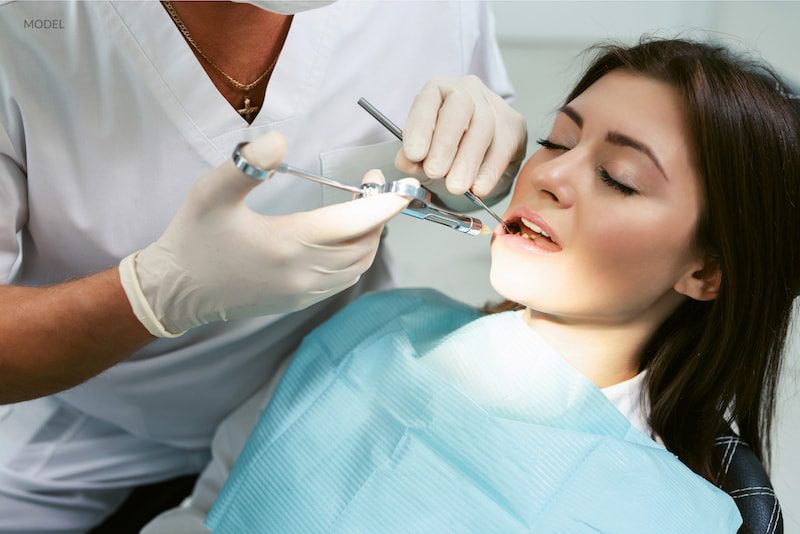What Kind of Sedation Do Dentists Use?
3 Minute Read:
When many people visit the dentist, one of their most significant concerns is, “Will my treatment hurt?” Fortunately, modern dentistry practices use a wide range of painkillers and anesthetics, ensuring that dental treatments are pain-free.

Unfortunately, knowing that a procedure will be pain-free is not enough for some patients. For some, anxiety remains. Whether that anxiety comes from fear of dental practices (which is quite common) or concern over sitting still for so long, many patients require more than local anesthesia during their treatments. They need sedation.
Dentists typically use four types of sedation: nitrous oxide sedation (laughing gas), oral sedation, IV sedation (conscious sedation), and general anesthesia. You’ve likely heard of these phrases used before, but you may not understand the difference. These types of sedation are different, and they have factors that make them more viable for a patient than the alternative.
What Happens With Nitrous Oxide Sedation?
Dentists commonly use nitrous oxide (more commonly known as laughing gas) as a safe and effective means of sedation. Laughing gas is a sedative that combines nitrogen and oxygen.
When inhaled, this mixture causes you to relax—you won’t be asleep, as you will be able to hear and respond to your dentist’s requests, but you will be in a calmer frame of mind.
Not only does nitrous oxide relax you, but it also minimizes pain during your treatment and causes a sense of euphoria, which, for some, makes their dental experience much more enjoyable. With this mode of sedation, you can drive yourself to the office and go home by yourself, not requiring a family member or a friend to accompany you like other modes of sedation.
What Happens With General Anesthesia?
Patients under general anesthesia will experience a complete loss of consciousness. The patient will not see, hear, or remember anything from the period they were “under.” This type of anesthesia is required for super anxious people or more invasive or lengthy dental procedures, such as wisdom teeth removal or complex dental implant surgery.
General anesthesia is safest when administered by a dental anesthesiologist, as all vitals and the patient are monitored very closely by the anesthesiologist and the dental surgeon can focus on the surgery.
What Happens With IV Sedation?
Sedation (both IV or oral) puts patients into a sleepy state, but they are still conscious. The patient can be given a little sedation, in which case they would be very responsive. Or, they can be put into a deeper state of sedation, in which case they would only respond to painful or repeated stimuli.
Benefits of IV sedation include:
- Patients typically have a shorter recovery time.
- It can cause an amnestic effect, allowing the patient to not remember the procedure.
- Individuals dealing with severe anxiety can benefit from IV sedation over oral sedation since it delivers a stronger sedation level.
Many periodontists offer both oral sedation and IV sedation, as they achieve relief from dental anxiety and a much more comfortable experience.
Overall, IV sedation is an excellent option for patients and not something to be scared of. The adverse effects that are sometimes associated with general anesthesia are avoided with this type of sedation. For this reason alone, most dentists opt for sedation for uncomplicated procedures. Additionally, sedation allows the patient to maintain their natural physiological reflexes and allows them to breathe on their own, which is useful during dental procedures.
Do I Need Dental Sedation?
No, not everyone needs sedation.
But, sedation can assist with your anxiety, reduce or eliminate pain, and make a procedure go by much faster. If given the option, you may voice your concerns with your dentist, but you generally shouldn’t worry about sedation.
Interested in Learning More?
Your dental health is a crucial part of your overall health. You need to take the time to take care of your oral health to ensure you don’t develop oral diseases or teeth problems. Visit your dentist regularly for check-ups and cleanings.
Book an appointment today with Dr. Salamati to see what quality, professional dental care looks like. We treat every patient with the utmost care. Schedule an appointment by calling (310) 275-1090 or filling out our online contact form.
